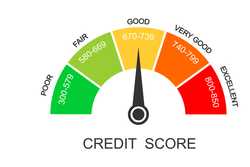- Can reduce what you owe
- You may be able to get out of debt faster
- It could help you avoid bankruptcy
- Professional help is available
Debt Settlement: A Comprehensive Guide

Our evaluations and opinions are not influenced by our advertising relationships, but we may earn a commission from our partners’ links. This content is created by TIME Stamped, under TIME’s direction and produced in accordance with TIME’s editorial guidelines and overseen by TIME’s editorial staff. Learn more about it.
Debt settlement is an agreement between you and a creditor to pay less than what you owe. When a debt is settled, the remaining amount due is forgiven.
You might consider debt settlement if you've fallen behind on credit cards or other unsecured debts. Creditors aren't obligated to agree to a settlement—but if they do, you could get out of debt faster without paying in full.
There are several reasons why someone might consider debt settlement in place of other debt solutions.
The biggest benefit, of course, is that it lowers your debt. For example, you might owe $5,000 to a credit card company, but get a creditor to agree to accept $3,500 instead. That's a $1,500 savings since you no longer have to pay that amount.
What the debt settlement process looks like depends on how you choose to approach it. You might negotiate with creditors yourself or hire a debt settlement or debt resolution company to work on your behalf.
If you're negotiating with creditors, the process might go something like this:
Working with debt settlement professionals is a little different.
You'll typically pay a fee to the debt settlement company for its services, but you don't have to do any of the work of negotiating yourself.
Whether you do it yourself or hire a debt settlement company, settling debts can hurt your credit. There is a simple reason why: Creditors typically won't negotiate unless you're behind on payments.
Payment history makes up 35% of your FICO credit score. The longer debt goes unpaid before you attempt to settle, the more negative marks you'll rack up on your credit for late payments. You may end up with a collection or charge-off on your credit if your creditor writes off the account as bad debt.
Technically, a creditor doesn't have to agree to a settlement. If you don't pay a debt, it can use other options to recover the money, including:
Even if a creditor agrees to negotiate, it may not accept the amount you want to offer. You might have to go higher than your original offer to get a creditor to cooperate.
If you don't feel comfortable negotiating debt yourself you might hire a debt settlement company instead. The upside is that you don't have to deal with creditors. The downside: This convenience isn't free.
Debt settlement fees vary by company, but you could easily pay hundreds or thousands of dollars to negotiate down your balances. You're saving money by negotiating debt since you'll pay less than what you owe, but there is still a cost if you're not able or willing to work out a settlement yourself.
Canceled or forgiven debt, including settled debt, may be treated as taxable income by the Internal Revenue Service (IRS). Having to report canceled debt on your tax return could potentially push you into a higher tax bracket if you're settling large amounts.
The IRS allows an exception to this rule if you can prove that you're insolvent. Essentially, your total debt has to outweigh your assets to qualify.
Debt settlement can take time and some of the cons might outweigh the pros. If you're behind on debt payments or close to falling behind, there are other possibilities you might try before considering a settlement.
If you're struggling with debt payments you may want to start by looking at your budget. Go over your monthly expenses line by line to see where your money goes and what you might be able to cut.
A nonprofit credit counselor can help you evaluate your budget to see if you have the money to pay your debt. And if you don't, your credit counselor can offer solutions that may be a better fit.
It's tempting to dodge your creditors when you're in debt, but they might have solutions they can offer you to help you get back on track.
For example, your creditors may be willing to:
You'll typically need to be able to prove a financial hardship to qualify for this kind of help.
If you plan to go the professional route with debt settlement it's important to find the right company to work with. As you're comparing companies, consider:
Reading consumer reviews from people who have used the company to settle debt can also provide insight. You can check the company's rating on Trustpilot and the Better Business Bureau to see what people like or don't like about them.
Be wary of any company that demands payment upfront before services or rendered, or dodges your questions about fees.
Whether debt settlement makes sense for you can depend on your situation. If you're wondering what other options you have, here are a few avenues you might explore.
A debt management plan is a structured plan for paying off what you owe. You work with a credit counselor or debt management company to create the plan. Once the plan is finalized, you make payments as scheduled until your debts are paid off.
Debt management is suited to unsecured debts like credit cards, and you might need to have $10,000 or more to qualify. Your creditors also have to agree to the plan.
Enrolling in a debt management plan doesn't allow you to pay less than what you owe. But you might be able to negotiate fee waivers or interest rate reductions that can save a little money.
Consolidating debt or refinancing means taking out a personal loan to pay off existing balances. Doing so can help you:
Debt consolidation or refinancing won't reduce what you owe. But either option could make your debt easier to manage. Getting personal-loan rate quotes can give you an idea of what terms you might qualify for.
Bankruptcy is often considered a last resort option for dealing with debt, but it can be the best option in certain situations. If you have mostly unsecured debts and very few assets, for instance, then a Chapter 7 filing could erase what you owe.
Filing bankruptcy will hurt your credit, but it can recover with time. There are certain requirements you'll need to meet to file bankruptcy. You'll also have to pay filing fees and attorney's fees if you decide to get legal help with your case.
The debt settlement industry has plenty of legitimate companies, but it also attracts its fair share of scammers. Debt settlement scams are designed to get you to hand over your money without providing anything to you in return.
Here are some red flags to watch out for if you're worried about falling victim to a debt settlement scam.
If something seems off about a debt settlement company, it probably is. And if you come across what you believe is a debt settlement scam you can report it to the Federal Trade Commission (FTC).
Falling behind on debt payments isn't ideal, but it's also not the end of the world. Debt settlement can help you pay off what you owe for less and hit the reset button financially. Researching debt settlement companies thoroughly can help you find a reputable one to work with if you're not ready to tackle negotiations on your own.
Debt settlement can be a good option for managing overwhelming credit card balances if you've fallen behind. You can get out of debt without paying in full and avoid bankruptcy. However, you'll need to be able to come up with the money you need to pay a settlement and your creditors must agree for it to work.
Debt settlement can hurt your credit if you've fallen behind on debt payments or you choose to stop paying so that creditors will be willing to agree to a deal. Payment history accounts for the biggest part of your credit-score pie, and one or more late payments could cost you substantial points. However, your score can recover if you're committed to paying on time consistently once you're finished settling debts
Debt settlement companies may only work with you if you have unsecured debts, such as credit cards, and owe a minimum amount. If you're negotiating yourself, then there are no minimum debt requirements. Generally, you must be behind on payments before a creditor will consider a settlement.
The information presented here is created by TIME Stamped and overseen by TIME editorial staff. To learn more, see our About Us page.



